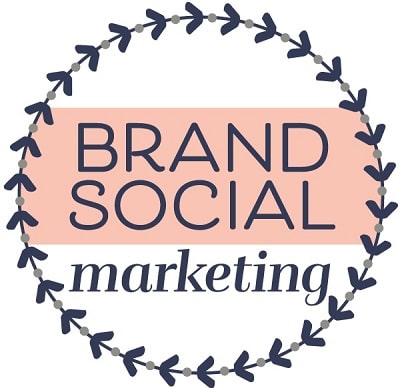FACT: Social media is one of the best tools (if not the best tool) out there for digital marketing. So what are the best social media platforms for small business?
By creating free accounts across a variety of platforms, you can leverage social media to increase brand visibility and gain a loyal audience without having to dip into your budget.
Plus, more and more people are now getting their product and service information from social media. Just check out these stats:
- 54% of social browsers use social media to research products. (Global Web Index)
- 90% of people on Instagram follow a business. (Instagram)
- After following a brand on social media, 91% of people will visit the brand’s website or app, 89% will buy from the brand, and 85% will recommend the brand to a family member or friend. (The Sprout Social Index)
Those are some impressive stats that should not be ignored!
But with so many options to choose from, it’s often hard to prioritize your social media efforts. After all, you’re a small business and likely don’t have the time or resources to effectively manage your presence on six different social media channels.
My recommendation:
If you’re a local brick and mortar small business, try to have a consistent presence on ALL social media platforms where your ideal customer might be spending time. (Don’t make the mistake of creating an account, but never posting. Lack of activity will make your business appear stale and unprofessional.)
To get started, here’s an overview of the main social media sites — and which markets they best serve.
With 1.84 billion daily active users, Facebook is by far the social media platform with the farthest reach. By creating a Facebook business page, you can share contact information, services, pricing, and direct-to-audience posts straight from the platform.
98% of marketers say Instagram is the most influential platform for marketing — a whopping 44% higher than Facebook! Instagram, with its easy-to-navigate engagement opportunities, is also optimized for building relationships between businesses and customers. Just don’t forget the quality images and graphics, which is the distinguishing factor between Instagram and other platforms.
I have to admit, I haven’t seen a ton of growth from Twitter, but that doesn’t mean it can’t happen. With the heavy sharing aspect on Twitter, it’s a great opportunity to spread the word about your content. The one catch to using Twitter is the word limit; you only have 280 characters to inform your audience of your products or services.
The most business-oriented social media platform, LinkedIn is a smart way to connect with other businesses and professionals. Think of it as an online networking group — a smart place to form connections, find employees, share B2B content, and start conversations with other professionals in your industry.
If you’re providing a product or services for the home, don’t sleep on the power of Pinterest. This photo-heavy platform lets people save content and links them directly back to your website, so it’s a great place to post tips, guides, educational content, and blogs.
A Google My Business page is an absolute must for local small businesses, so make sure you’ve created an accurate and complete business page and are posting regularly (at least once per week). This will help drive up traffic when people search locally for your service.
Social media is a great strategy for digital marketing as long as you prioritize which platforms you use. With these differentiators in mind, think about which platforms will best reach your target audience and meet your business needs, and focus your efforts there.
If you’re not sure where to start with social media or would like someone to manage your social media activity for you, the Brand Social Marketing team can help! Contact us today to get started.

